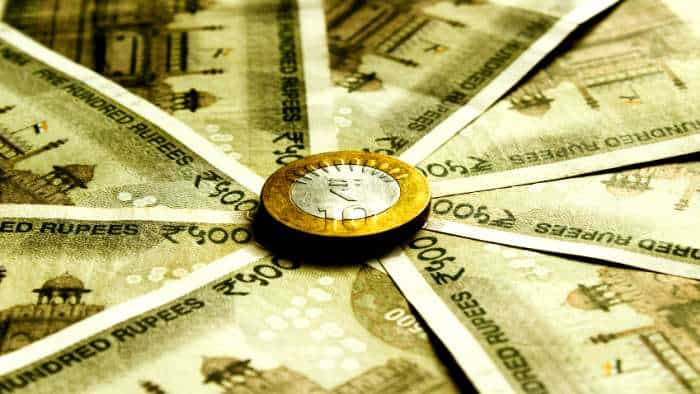China Covid restrictions 2022: Parks shut in Beijing; Shanghai tightens entry as coronavirus cases rise
China Covid restrictions 2022: In Beijing, cases have been hitting new highs every day, prompting calls from the city government for more residents to stay put and show proof of a negative COVID test, not more than 48 hours old, to get into public buildings.

China Covid restrictions 2022: Beijing shut parks and museums on Tuesday and Shanghai tightened rules for people entering the city as Chinese authorities grapple with a spike in COVID-19 cases that has deepened concern about the economy and dimmed hopes for a quick reopening.
China reported 28,127 new domestically transmitted cases for Monday, nearing its daily peak from April, with infections in the southern city of Guangzhou and the southwestern municipality of Chongqing accounting for about half the total.
In Beijing, cases have been hitting new highs every day, prompting calls from the city government for more residents to stay put and show proof of a negative COVID test, not more than 48 hours old, to get into public buildings.
Late on Tuesday, financial hub Shanghai announced that from Thursday people may not enter venues such as shopping malls and restaurants within five days of arriving in the city, although they can still go to offices and use transport. Earlier, the city of 25 million people ordered the closure of cultural and entertainment venues in seven of its 16 districts after reporting 48 new local infections.
The wave of infections is testing recent adjustments China has made to its zero-COVID policy, aimed at making authorities more targeted in clampdown measures and steering them away from blanket lockdowns and testing that have strangled the economy and frustrated residents nearly three years into the pandemic.
"Some of our friends went bankrupt, and some lost their jobs," said a 50-year-old Beijing retiree surnamed Zhu.
"We can't do many activities we intended to do, and it is impossible to travel. So we really hope that the pandemic can end as soon as possible," she said.
Health authorities attributed two more deaths to COVID-19, after three over the weekend, which were China's first since May.
Even after the adjusted guidelines, China remains a global outlier with its strict COVID restrictions, including borders that remain all-but-shut.
Tightening measures in Beijing and elsewhere, even as China tries to avoid city-wide lockdowns like the one that crippled Shanghai this year, have renewed investor worries about the world's second-largest economy, weighing on stocks and prompting analysts to cut forecasts for China's year-end oil demand.
Brokerage Nomura said its in-house index estimated that localities accounting for about 19.9% of China's total gross domestic product were under some form of lockdown or curbs, up from 15.6% last Monday and not far off the index's peak in April, during Shanghai's lockdown.
The government argues that President Xi Jinping's signature zero-COVID policy saves lives and is necessary to prevent the healthcare system becoming overwhelmed.
But many frustrated social media users drew a comparison with maskless fans at the soccer World Cup, which began on Sunday in Qatar.
"Tens of thousands in Qatar don't wear masks. And we are still panicking," wrote one user on the Weibo platform.
LOCALISED LOCKDOWNS
Numerous Beijing residents have seen their buildings locked down during the recent outbreak, although those restrictions often last just a few days.
Some residents said grocery deliveries were slow because of heavy volumes while many museums were closed and venues such as the Happy Valley amusement park and the Chaoyang Park, popular with runners and picnickers, said they would shut.
Beijing reported 1,438 new domestic cases for Monday, up from 962 on Sunday, plus 634 more for the first 15 hours of Tuesday.
Chinese Vice Premier Sun Chunlan, who has spearheaded the zero-COVID policy, visited Chongqing on Monday and urged authorities to stick with the plan and bring the outbreak under control, the municipality said.
NOT AS ROSY
China's economy faces one of its slowest growth rates in decades: a gigantic property bubble has burst, youth unemployment recently hit record highs, and the private sector has been paralysed by its zero-COVID policy and a series of crackdowns on industries authorities say had seen "barbaric" expansion.
Investors had hoped that China's more targeted enforcement of COVID curbs could herald more significant easing, but many analysts are cautioning against being too bullish.
Experts caution that full reopening requires a massive vaccination booster effort and a change in messaging in a country where the disease remains widely feared. Authorities say they plan to build more hospital capacity and fever clinics to screen patients, and are formulating a vaccination drive.
"The real picture may not be as rosy as it seems," Nomura analysts wrote, saying they only expected any reopening to accelerate after March next year, when the reshuffle of China's top leadership is completed.
"Reopening could be back and forth as policymakers may back down after observing rapid increases in cases and social disruptions. As such, local officials may be even more reluctant to be the initial movers when they try to sound out Beijing’s true intentions," Nomura wrote.
Click Here For Latest Updates On Stock Market | Zee Business Live
Get Latest Business News, Stock Market Updates and Videos; Check your tax outgo through Income Tax Calculator and save money through our Personal Finance coverage. Check Business Breaking News Live on Zee Business Twitter and Facebook. Subscribe on YouTube.
RECOMMENDED STORIES

Top 7 mid cap mutual funds with highest SIP returns in 3 years: Rs 22,222 monthly SIP investment in No 1 fund has converted into Rs 15,07,277

Top 7 Small Cap Mutual Funds With Best SIP Returns in 10 Years: Rs 11,111 monthly SIP investment in No 1 fund has sprung to Rs 57,30,613; know about others too
10:12 AM IST










 Austrian coalition talks collapse as NEOS quits
Austrian coalition talks collapse as NEOS quits UK to increase energy price cap by 1.2%
UK to increase energy price cap by 1.2% Highest-level rain alert issued for Japan's Ishikawa
Highest-level rain alert issued for Japan's Ishikawa Iran helicopter crash latest news: Iran President Ebrahim Raisi found dead at helicopter crash site, state media says
Iran helicopter crash latest news: Iran President Ebrahim Raisi found dead at helicopter crash site, state media says Iranian President Raisi's chopper located, rescue teams reach site of crash
Iranian President Raisi's chopper located, rescue teams reach site of crash